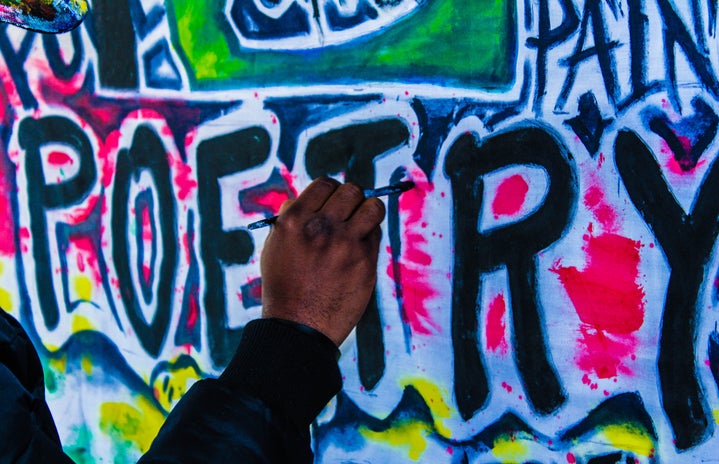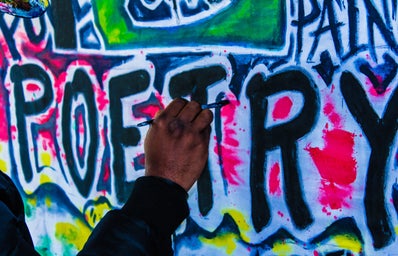Poetry, like most of the art forms, falls in the realm of emotions, imaginations and most importantly of sensibilities that reflect the reality of the world. The use of words and rhythm to convey a meaning that is beyond the literal, portrays an eccentric appearance of poems.
Poetry is an oral tradition. Since time immemorial, societies have used prose and poetry to transmit oral history, rituals, customs and oral literature from one generation to the next. It is believed that ‘there was poetry long before there was pen and paper’. Poetry was not always a realm of written word, only accessible to the educated elite, as we see today. In the lack of literacy among the general population, oral poetry was used as a means to document events and record them in the memory of the masses for posterity.
In an extremely polarized world where reality seems far-fetched, poets play an important role to challenge censorship and immortalize social issues before the people. Speaking truth to power remains a crucial role of the poet in the face of political and media rhetoric designed to obscure, manipulate, or worse. Poets do not reside in a bubble, isolated from the larger social structure. Rather poetry is a reflection of the poet’s rumination about events that occur around him. When there are constant attempts by the authorities to pay the people to forget any event of grave concern that has the potential to highlight its failure, poetry, at its core, has the ability to expose the deepest and most inaccessible realities of the individual human experience. This makes poetry by all means political. We cannot diminish poetry, just like any other forms of art as an apolitical creation by the artist. Poetry is an important tool for creating consciousness among the masses regarding the reality of the society they are living in. When poets record important events in their lives, and in the world at large, they are capturing an essential piece of the human experience—one that transcends time and makes an impact for generations. By following the paths of emotion, of sensitivity and of the imagination, poetry is a vehicle for transmitting human knowledge and values − a sense of good and evil, history,ancient traditions, a literary and aesthetic artifact of its respective time.
Social events affect the artists both politically and emotionally. Poetry is an art that acts as an historical record for generations to never lose sight of fact. It is nothing but a collection of memories, histories that live in the collective memory of the society; they illuminate the ; underside’ of history. For instance, no historical records can convey the sheer loss and trauma of the Holocaust the way Anne Frank’s diary did. While history shows us the broader picture of an event, literature tends to focus on the individual and her private sphere, dealing with the personal responses to major historical events. Thus, it enables us to understand the magnitude of suffering more closely. Today we know the horrors felt by the people at the time of Partition through plenty of writings. They are etched in the collective memory. Poets have articulated the pain of Partition exclusively. One of the most famous poems that capture the loss of Partition is Amrita Pritam’s lament ‘Ajj Akhan Waris Shah Nu’ (Today I Ask Waris Shah) where she implores the Punjabi poet Waris Shah, who wrote the romantic tragedy of Heer Ranjha, to rise from the dead and put into words the bloodshed of the Partition. Thus poetry is the mirror of time, a cultivation of imagination, memory and awareness of experiences.


